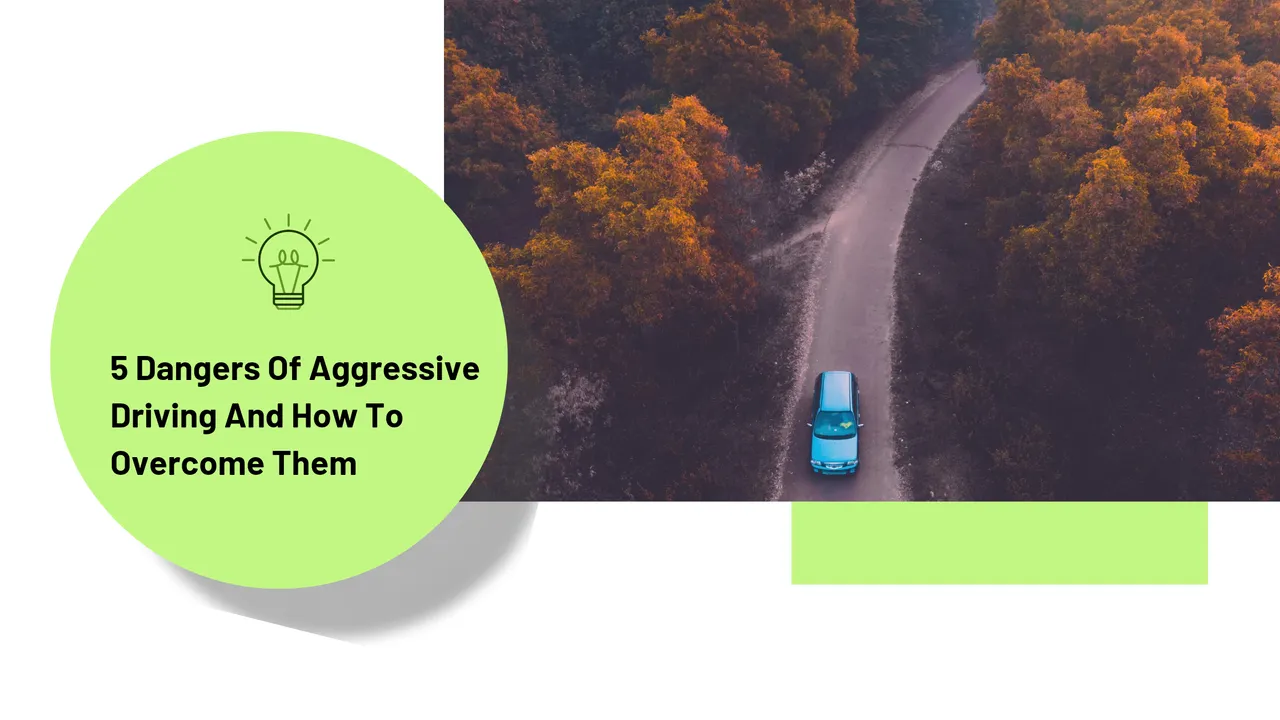
Accept it. When you weren't yourself behind the wheel, you might have been exposed to the risks of aggressive driving. You had your excuses, for sure: either you were running late for something or another rude driver cut you off. You felt anxious, tense, angry, irritable, and scared. Whatever the cause, you were in a terrible mood as you were driving.
Your complexion turns crimson. On your forehead, the New York City subway system is shaped by your capillaries. You utter a few four-letter words and three times tap the steering wheel. Once the wrath has subsided, you start to cool off. No harm was done, so everyone keeps going.
Sadly, that does not always happen. Sometimes things spiral out of control, and the risks associated with aggressive driving become palpable.
Aggressive Driving
Driving aggressively is when a driver knowingly engages in several moving violations that could endanger people or property. Notably, a combination of the following may constitute this type of risky driving behaviour:
Speeding
Tailgating
Running red lights
Defying road signs
Cutting in front of another driver
Not using a signal when changing lanes
Swerving through traffic
Attempting to pass or change lanes while blocking vehicles
Passing on the shoulder
Passing through restricted areas
In addition, Road rage is the term used when irate drivers assault other people verbally or even violently to intimidate them. Road rage has the potential to turn into a criminal act, whereas aggressive driving is considered a traffic violation. And sure, each of them may be detrimental to the parties involved.
Dangers of Aggressive Driving
Traffic Collisions
These take place daily. The causes remain the same, regardless of the severity. One of the most typical ones, according to studies, is speed. To be clear, when cars go substantially faster or slower than usual, the danger of an accident rises.
Fines/ Penalties / Jail Time
Driving aggressively can result in a ticket, significant fines, and the loss of demerit points from one's license. License suspension, enrollment in a rigorous behaviour rehabilitation course, and even jail time are examples of more severe sanctions.
Road Injuries / Fatality / Damage To Property
Environmental Impact
The ecosystem is also impacted by aggressive driving, which you probably didn't expect. Data indicate that how aggressively a vehicle is driven affects both fuel consumption and emission rates. And let's not forget that another unfavourable effect of aggressive driving is noise pollution.
Hidden Fees
Aggressive drivers may incur additional fees in addition to possible fines and penalties. It is a truth that even minor adjustments to driving behaviour have a noticeable impact on fuel economy. In other words, aggressive driving behaviours result in abrupt acceleration and forceful braking. In practice, this results in excessive fuel consumption that could increase by at least 40% from the norm. The cost of vehicle repairs is another expense that, depending on the severity of the incident and the entire situation, may be exorbitant.
How To Deal With The Dangers Of Aggressive Driving
It can be frightening to be in risky driving scenarios, especially if you're the target. But don't worry! You can follow a few easy actions to protect yourself if you encounter aggressive drivers:
Keep your cool and your eyes on the road.
Aim to avoid obnoxious drivers.
Avoid making eye contact if you can't for any reason.
By all means, ignore any overtures and refuse to reciprocate them.
Try to be understanding; they can be having a terrible day or struggling with a mental illness.
Make sure you buckle up in your car. Encourage any passengers, if you have any, to follow suit.
Do not obstruct the passing lane.
How To Drive Safely Without Being Aggressive
Anyone can develop a bad driving habit at some point in their lives. It is crucial to be aware of the things that could impact your mood when driving. Are you dealing with anything personally right now? Is it simply traffic, though? The first thing to keep in mind is to maintain control of your vehicle and refrain from acting out of anger while driving. However, if you sense your feelings take control of the wheel; follow the advice below to keep yourself under control:
Give yourself plenty of time to go where you're going. If for some reason you're stressed about getting there, this will undoubtedly lower your stress levels.
Follow posted speed restrictions.
Stop at stop signs and red lights. Likewise, never disregard yellow traffic signals.
Avoid distractions like your phone or other devices while driving.
Share the road with others.
Do not let the actions of other drivers impact your disposition. Instead, work on developing a protective driving mindset.
Focus on your breathing if you see yourself becoming tense. When you are physically relaxed, your mind will follow.
Avoid the urge to retaliate against other drivers who make mistakes. They are only human, just like you, so let the past be the past.
Be patient and refrain from reacting angrily when provoked.
If you enjoy challenging other drivers because you have a competitive disposition, you must find a means to restrain yourself. Remind yourself that getting to your destination safely is what matters most; there is no competition here.
Please do not feel ashamed to seek professional assistance if you are unable to control your aggressive behaviour on your own.
Conclusion
Driving aggressively has a lot of risks attached to it. From property damage to loss of lives, etc. The best way to avoid the terrible trouble that comes from aggressive driving is to always stay calm. Anytime you feel aggressive about it, revisit this post to help you out.